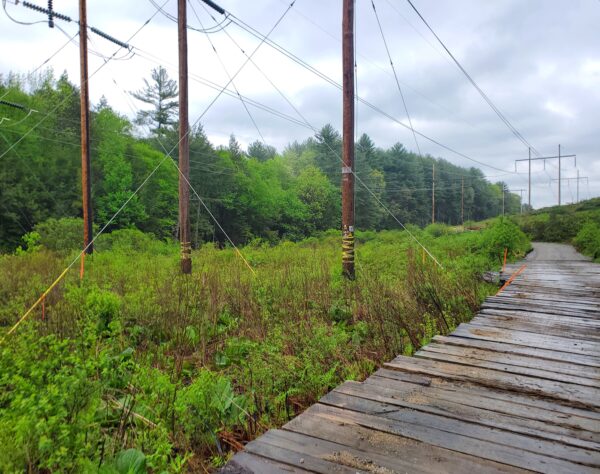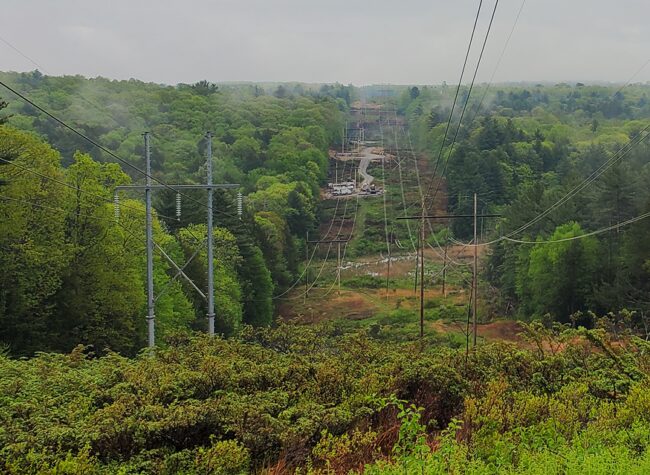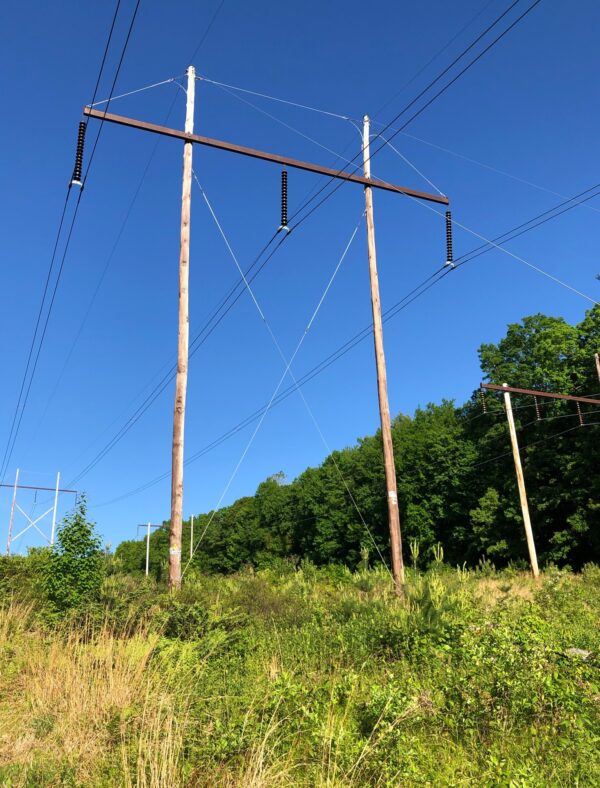Powering the Future: Siting and Permitting Reforms and the Transition from Fossil Fuels to Renewable Energy
September 18th, 2024
New York and New England are leading the US renewable energy transition driven by ambitious state clean energy goals and strong energy development and utility sectors. Record numbers of new solar, wind, and energy storage projects are being proposed throughout the region, but deployment can be slowed by limitations in electric grid transmission capacity and delays in securing the required regulatory approvals and permits. In response to these challenges, major new grid expansion and upgrade projects are on the horizon along with regulatory reforms designed to improve planning and achieve regulatory certainty in a manner that will shorten the review schedule. These measures are aimed at accelerating the transition from fossil fuels to sustainable, renewable energy generation sources.

Increasing Transmission in New York and New England
Integrating new renewable energy generation into the existing electric transmission and distribution grid while maintaining a reliable energy supply is an incredibly complex challenge. The independent system operators (NYISO and ISO-NE), utilities, and regulators are addressing this challenge with a number of ambitious plans that are already yielding results. In New York, projects including the Propel NY Energy Project are advancing through permitting and are designed to enhance the reliability, resiliency, and capacity of New York's electric grid while accommodating new renewable energy sources. In Massachusetts, the Eversource Cape Cod Solution group of projects is a multi-phase transmission program designed to efficiently and cost-effectively improve electric reliability on Cape Cod through the integration of offshore wind energy. Epsilon Associates has supported the design and permitting of these, and other similar projects aimed at upgrading and expanding the electric transmission grid in advance of delivery of new sources of renewable energy.
At a broader scale, the Northeast States Collaborative on Interregional Transmission involves ten states—Connecticut, Delaware, Maine, Maryland, Massachusetts, New Hampshire, New Jersey, New York, Rhode Island, and Vermont—working together to enhance the planning and development of interregional electric transmission projects. The goal of this agreement is to improve the coordination of transmission infrastructure across these states, facilitating the integration of renewable energy sources including offshore wind and improving the reliability and resilience of the grid.

Changes in Planning and Permitting
Central to achieving the region’s clean energy goals and deploying renewable generation and expanded transmission is speeding the pace of permitting and construction. The state and federal government are both exploring ways to reduce the time required to approve projects with creative and equitable reforms to regulatory reviews.
At the federal level, the Federal Energy Regulatory Commission has implemented several changes such as Order 1920 to improve the planning regional transmission projects while addressing the growing need for a modern and reliable electric grid. Major reforms in Order 1920 include revising planning horizons, developing new planning scenarios, and adding risk-mitigating considerations when selecting transmission solutions, all designed to facilitate the build-out of transmission infrastructure that serves the changing generation mix and growing electricity demand. The Energy Permitting Reform Act of 2024 (S. 4753), a bipartisan bill to reduce timeframes for federal permitting, siting, and review of energy infrastructure projects was approved by the Senate Energy and Natural Resources Committee in July, and there are several other Federal bills under review that further seek to reduce regulatory permitting timeframes for electric transmission projects considered critical to meeting increasing demand associated with electrification efforts and supporting introduction of renewable energy to our regional transmission systems.
Individual states are also exploring ways to improve transmission permitting. In New York, the Renewable Action Through Project Interconnection and Deployment (RAPID) Act is intended to expedite the environmental review and permitting of major renewable energy and electric transmission facilities. In Massachusetts, a recent Department of Public Utilities Order approved a proposed electric sector modernization plan, anticipated to support major investments by electric distribution companies to help achieve the Commonwealth’s clean energy goals. Massachusetts has also recently considered, but not yet passed, significant changes to how the Massachusetts Energy Facilities Siting Board reviews and approves infrastructure projects. Based on these actions, the states clearly recognize the imminent need for aligning regulatory schedules and processes with the growing need for electric transmission and distribution system improvements.

Epsilon Associates: A Partner in the Clean Energy Transition
Epsilon Associates, Inc. has a proven track record having expertly navigated the regulatory process for over 500 complex energy generation and transmission projects across New England and New York. Epsilon has deftly adapted to the changing permitting landscape on both the Federal and state levels, and supports our clients to ensure that they are meeting their project objectives on time and within budget. With the recent establishment of our New York office in Albany and the expansion of our Energy Services Practice, our team of seasoned experts is poised to assist utilities and independent energy developers in seizing the expanding opportunities in the renewable energy sector. Our nimble approach has helped pioneer cutting edge technologies, like the successful federal and state permitting of the Vineyard Wind 1 Offshore Wind Project, and is well positioned to help utilities and developers capitalize on changes in permitting processes when speed to market matters.
For more information on Epsilon's Energy Services Practice click here.
About the Experts

Chris Rodstrom is a Lead Scientist in Epsilon’s Energy Services Practice with over 20 years of experience in energy, real estate, and conservation across the private, public, and non-profit sectors. Dedicated to advancing clean energy initiatives through offshore wind, solar, battery storage, and grid modernization, Chris excels at creating innovative solutions to complex challenges, coordinating technical designs with permitting strategies, securing rights and permits, negotiating real estate transactions, managing intricate projects, and overseeing extensive easement portfolios.

David Klinch, PWS, PMP is a Principal with over 25 years of experience in wetland ecology, wetland delineations, wildlife habitat evaluations, environmental regulatory analysis, impact statement preparation, and environmental permitting with a strong focus on the energy sector. Mr. Klinch is an environmental regulatory specialist providing environmental permitting, consulting and regulatory compliance, and due diligence services associated with natural gas pipeline projects, and electric generation and transmission project siting and permitting. He also provides regulatory agency coordination, wetlands and waterway assessments, waste site characterization, and construction management and oversight services.